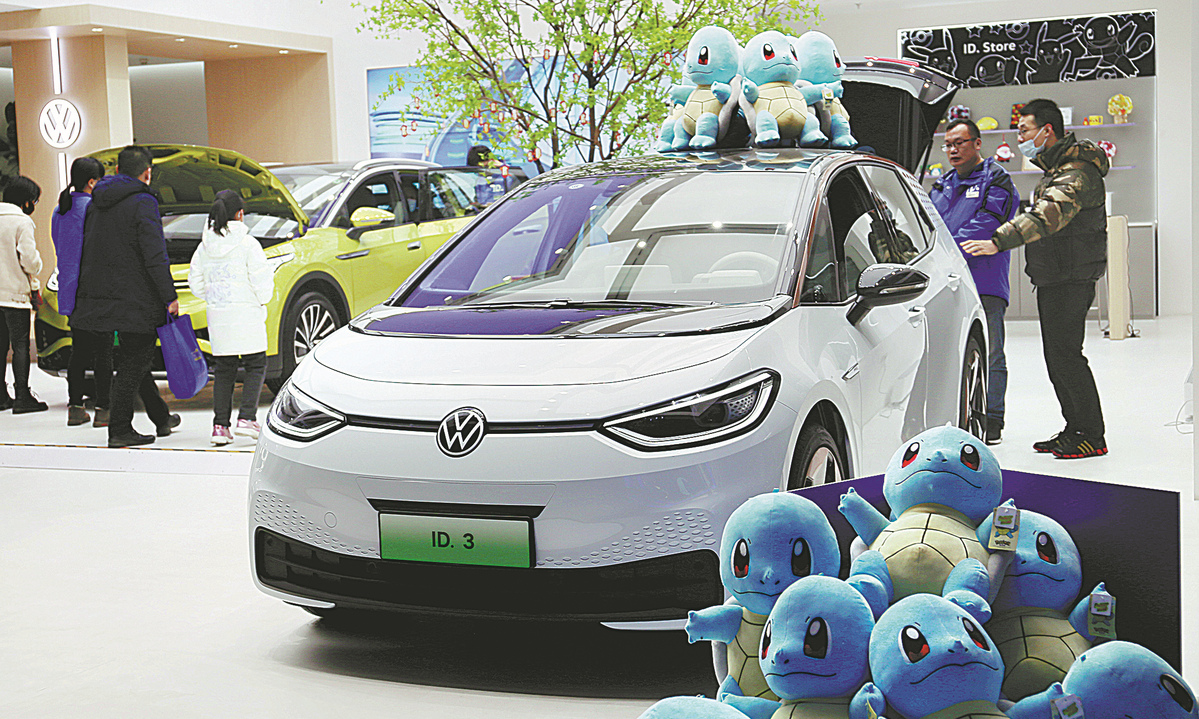Volkswagen deliveries hit by chip shortages
By LI FUSHENG | China Daily | Updated: 2022-01-17 11:16

Volkswagen AG saw its sales fall again last year in China, its largest market worldwide, after its first fall in years in 2020.
The German car group's sales fell 14.1 percent to 3.3 million vehicles in 2021, although it remained the best-selling international carmaker in the country with a 16 percent market share.
"The year 2021 was a very difficult year for us," said Stephan Woellenstein, CEO of Volkswagen Group China.
He said the semiconductor crisis has swept across the auto industry and hit Volkswagen even harder because many of the giant's brands and models share platforms.
Volkswagen said that was one reason why SAIC Volkswagen, which mainly produces MQB models, saw steeper falls than another Chinese joint venture FAW-Volkswagen.
In China alone, the carmaker produced 630,000 fewer vehicles last year compared with 2020, and a far cry from what it had planned, Woellenstein said.
Most of those affected were volume brands, including Volkswagen and Skoda, while premium ones from Porsche to Bentley and Lamborghini hit records in China.
Volkswagen was still the bestselling brand in the Chinese market, but its sales saw a double-digit fall percent-wise last year to 2.3 million units, which Woellenstein said is a "disappointing number" compared with what it achieved in the past.
"Clearly it is not a demand topic; it is a supply one," he said. "Some global chip makers are showcasing latest chip technologies at CES (Consumer Electronics Show) in Las Vegas but at the same time they are not able to supply to the industry what we are really demanding."
Chip shortages partly failed Volkswagen's electric car sales goals last year in China as well.
More than 70,000 Volkswagen ID. vehicles were sold, 10,000 units fewer than the lower range of the 80,000-100,000 sales target.
Volkswagen AG is pinning high hopes on China in its electrification campaign, aspiring for a status similar to the one in the era of gasoline vehicles.
The ID. series, based on its dedicated MEB platform, were popular in its home market of Europe, so the executives at Wolfsburg tended to believe those vehicles that drive like "true Volkswagens" would be a hit in its largest market of China as well.
Analysts said the tech-savvy Chinese car buyers are more interested in chic functions available in vehicles from nontraditional brands like Tesla and local Chinese startups.
Woellenstein acknowledged the competitiveness of local Chinese new energy vehicle makers. He said 80 percent of electric models against whom Volkswagen vehicles were pitted in the process of development were from Chinese brands.
He even said that in the age of NEVs, Chinese brands will seize the lion's share of the market. Currently, local brands combined account for 44 percent of the passenger vehicle market in China.
In terms of its electric vehicle sales goal in 2022, Woellenstein said the automaker would still like to at least double its deliveries compared with 2021, but that goal "is not currently secured by the semiconductor supplies that we currently see".
He suggested "being patient "when asked if he had any advice for other established carmakers including Toyota which are poised to roll out EVs in China.
"Because we see until today at least a different pattern in NEV buyers from ICE (internal combustion engine) vehicle buyers," he said.
























